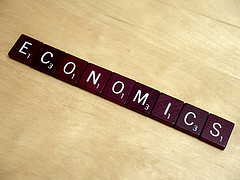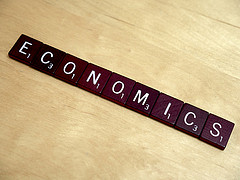Characteristics of managerial economics

Microeconomics: It studies the problems and principles of an individual business firm or an individual industry. It aids the management in forecasting and evaluating the trends of the market.
Normative economics: It is concerned with varied corrective measures that a management undertakes under various circumstances. It deals with goal determination, goal development and achievement of these goals. Future planning, policy-making, decision-making and optimal utilisation of available resources, come under the banner of managerial economics.
Pragmatic: Managerial economics is pragmatic. In pure micro-economic theory, analysis is performed, based on certain exceptions, which are far from reality. However, in managerial economics, managerial issues are resolved daily and difficult issues of economic theory are kept at bay. Uses theory of firm: Managerial economics employs economic concepts and principles, which are known as the theory of Firm or ‘Economics of the Firm’. Thus, its scope is narrower than that of pure economic theory. Takes the help of macroeconomics: economics incorporates certain aspects of macroeconomic theory. These are essential to comprehending the circumstances and environments that envelop the working conditions of an individual firm or an industry. These are essential to comprehending the circumstances and environments that envelop the working conditions of an individual firm or an industry. Issues such industrial policy of the government, price and distribution policies, wage policies and antimonopoly policies and so on, is integral to the successful functioning of a business enterprise.
Aims at helping the management: Managerial economics aims at supporting the management in taking corrective decisions and charting plans and policies for future.
A scientific art: Science is a system of rules and principles engendered for attaining given ends. Scientific methods have been credited as the optimal path to achieving one’s goals. Managerial economics has been is also called a scientific art because it helps the management in the best and efficient utilisation of scarce economic resources. It considers production costs, demand, price, profit, risk etc. It assists the management in singling out the most feasible alternative. Managerial economics facilitates good and result oriented decisions under conditions of uncertainty.
Descriptive: economics is a applied discipline. It suggests the application of economic principles with regard to policy formulation, decision-making and future planning. It should be noted that the application of managerial economics is not restricted to profit-seeking business organisations. While a non-profit hospital is not like a typical firm seeking to maximise its profits, a hospital does strive to provide its patients the best medical care possible given its limited staff, equipment, space and other resources. The hospital administrator can employ concepts and tools of managerial economics to determine the optimal allocation of the limited resources available to the hospital. In addition to non-profit business organisations, government agencies and other non-profit organisations can exploit the techniques of managerial decision making to achieve goals in the most efficient manner.
For assistance with your Economics Assignment Help you can visit classof1.com
Classof1.com is open 24/7. You can call us at 1-877-252-7763 or drop an email to learning@classof1.com
Related Economics Articles
